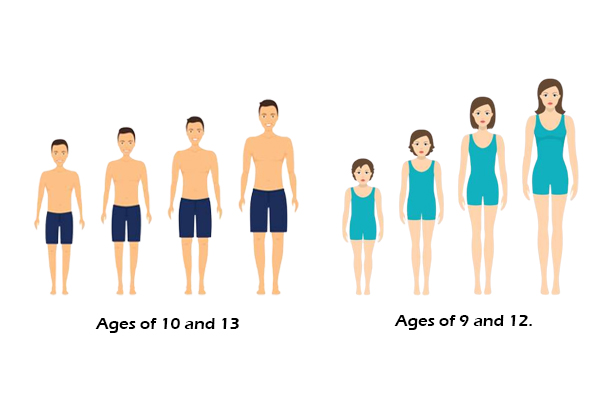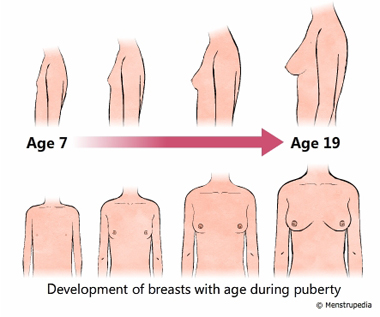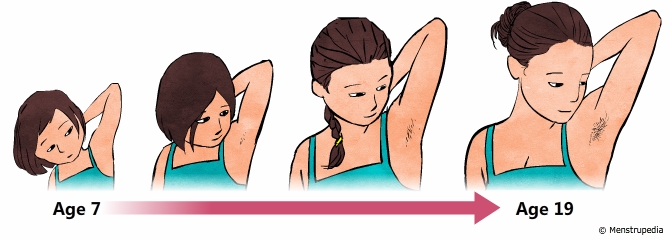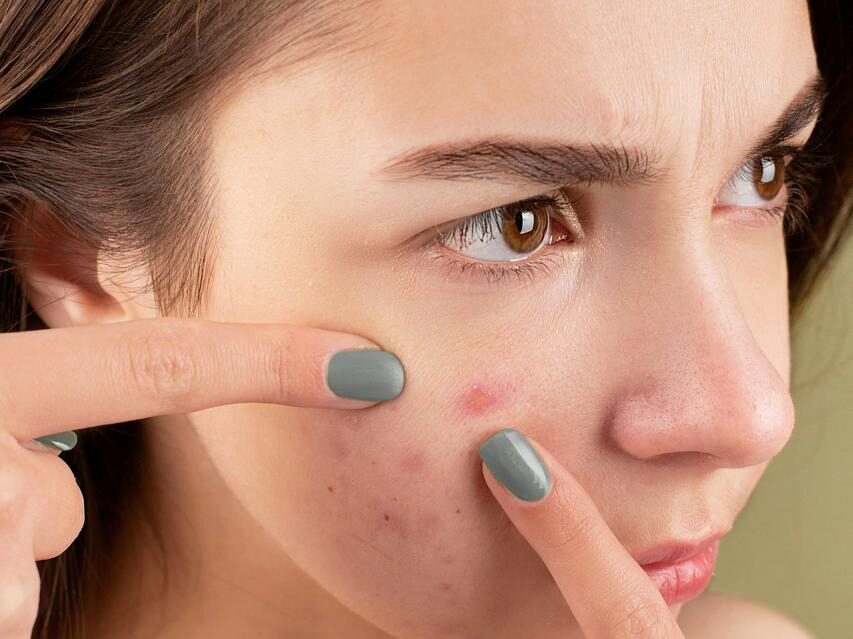What is Puberty?
Puberty is a critical developmental stage where children transition into teenagers and eventually into adults. It brings about significant physical, emotional, and hormonal changes. Understanding these changes can help make the journey smoother and less overwhelming.
All About Puberty
Physical Changes During Puberty
Growth Spurts
One of the first signs of puberty is a sudden increase in height. You might experience rapid growth, sometimes making you feel awkward or clumsy. This is a normal part of becoming a teenager.

Body Changes
For Girls: As puberty progresses, you’ll notice your breasts beginning to develop. Hair will start growing under your arms and in your pubic area. Your hips may widen, and eventually, you’ll experience your first period, known as menarche. The hormone responsible for these changes is “estrogen”

For Boys: You’ll start seeing more hair growth on your face, under your arms, and in your pubic area. Your voice will deepen, and you’ll notice an increase in muscle mass. Additionally, your testicles and penis will grow. The main hormone driving these changes is “testosterone”
Skin Changes
Many teens develop acne during puberty due to increased oil production in the skin. Using gentle skincare products and maintaining a clean skincare routine can help manage acne effectively.

Hormonal Changes and Emotional Health
- Understanding Hormones
Hormones are chemicals in your body that regulate growth and emotions. During puberty, your body produces more hormones, which can lead to mood swings and emotional changes.
- Emotional Ups and Downs
It’s common to feel more sensitive, moody, or confused during puberty. These feelings are a normal part of growing up. Talking to someone you trust, like a parent or friend, can help you navigate these changes.
Understanding Menstruation for Girls
- Your First Period
Girls typically get their first period between the ages of 9 and 16. This is a sign that your body is maturing. Learning about menstrual hygiene, such as using sanitary pads or tampons, is essential for managing your period comfortably.

- Reproductive Health
It’s important to understand how your reproductive system works. This includes knowing about safe sex practices and contraception, which helps you make informed and healthy choices.
Practical Tips for Handling Puberty
- Stay Active and Eat Well
Maintaining a healthy diet, exercising regularly, and getting enough sleep are crucial during puberty. These habits support both your physical and emotional well-being.
- Communicate Openly
Talking about the changes you’re experiencing with a parent, guardian, or trusted adult is important. They can provide support, answer your questions, and help you feel more at ease.
- When to See a Doctor
If you have concerns about severe acne, extreme mood swings, or other health issues, it’s okay to consult a doctor. Professional advice can be beneficial in managing these concerns.
Common Myths About Puberty
Myth: Acne is Just a Result of Poor Hygiene.

Truth: Acne is primarily caused by hormonal changes and increased oil production in the skin. While good hygiene can help manage acne, it’s not the only factor.
Myth: Masturbation Affects Puberty.
Truth: Masturbation is a normal activity and does not affect the timing or progression of puberty. It’s a natural part of human sexuality and does not impact growth or development.
Myth: Boys and Girls Experience Puberty the Same Way.
Truth: While both boys and girls go through puberty, their experiences are different. Girls undergo breast development and menstruation, while boys experience voice changes and increased muscle mass. These differences are due to varying hormones.
Myth: Puberty is Only About Physical Changes.
Truth: Puberty involves both physical and emotional changes. Along with physical growth, hormonal changes can influence mood, emotions, and mental health.
Need Help or Have Concerns?
If you have questions or concerns about puberty or other health issues, don’t hesitate to reach out to our experts at Health Authentica. We are dedicated to providing accurate, reliable information and supporting you through every stage of your health journey.










3 thoughts on “Understanding Puberty: A Comprehensive Guide for Teens and Parents”